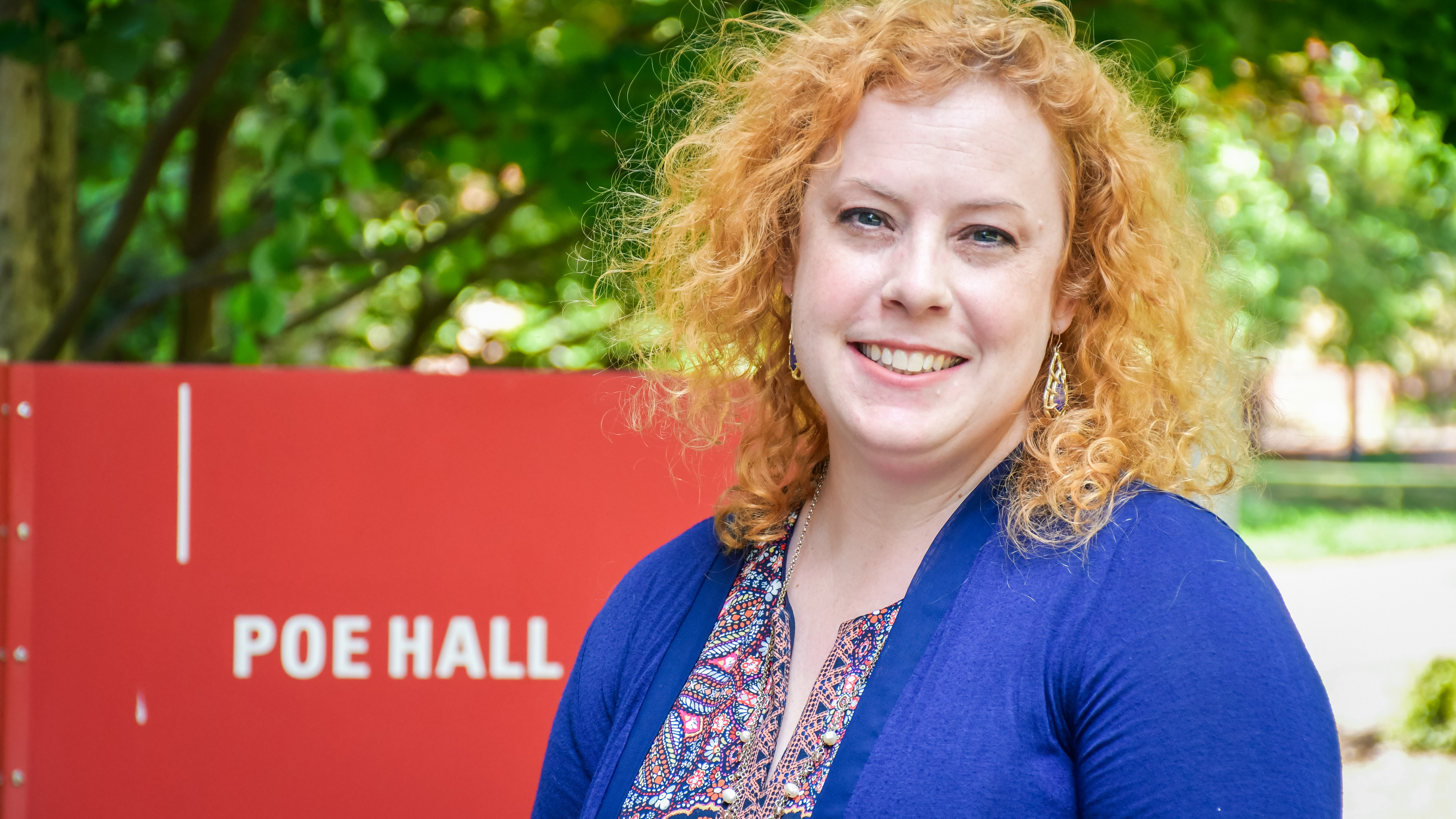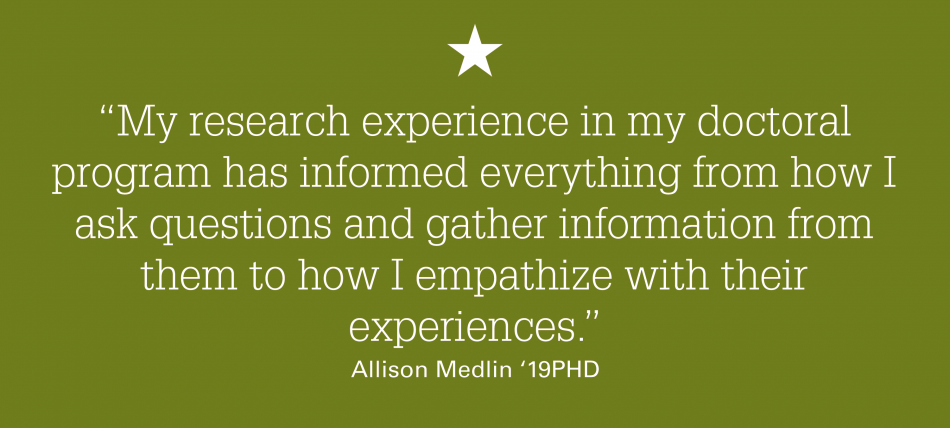Allison Medlin ’19PHD: Using Research to Better Serve Students

Allison Medlin, the director of NC State University’s Goodnight Scholars Program, chose to earn her Doctor of Philosophy in Educational Leadership, Policy, and Human Development at the College of Education to position herself as a leader in higher education at the university. But she didn’t expect that the program’s research experiences would revolutionize the way she works and interacts with students.
She shares how an encounter during a pilot study in her Educational Research and Policy Analysis program area of study transformed the way she understands and supports students on campus. The following as-told-to is edited from an interview.
When I enrolled in my doctoral program at the NC State College of Education, I approached it pragmatically. A Ph.D. is the currency when working at a university, so I knew my career opportunities would expand by pursuing this degree. I love NC State, so I knew I would enjoy the program. What I didn’t anticipate was that I’d fall in love with research.
All doctoral students in my program are required to take a foundations class with Dr. Joy Gaston Gayles [professor of higher education], and it is typically the first class you take. For me, it was very challenging. I like to think of it as when you first begin that class, no one is a doctoral student, but when you leave, you are fully prepared to be a doctoral student, to conduct research, and to develop as an emerging scholar.
It was in that class that I found my passion for learning about academic resilience through qualitative research. That passion would only intensify as I progressed through my coursework.
In Qualitative Methods I, I had the opportunity to develop a pilot study on Pack Promise Scholars — a scholarship program for low-income students here at NC State. I began to investigate how students facing adversity are able to overcome and succeed. It was my first real experience conducting interviews and research, which was extremely important for me.
 During this study, I interviewed a student who had lost both parents. He did not have a home to return to. He did not have any other financial resources. His Pack Promise scholarship and the community here at NC State was his safety net, his family. The other students I talked to were obviously facing significant financial obstacles, but they all had parents or supportive people invested in their lives and a home outside of campus. Their baseline level of support made me start thinking about the students, like the one who had lost both of his parents, that don’t.
During this study, I interviewed a student who had lost both parents. He did not have a home to return to. He did not have any other financial resources. His Pack Promise scholarship and the community here at NC State was his safety net, his family. The other students I talked to were obviously facing significant financial obstacles, but they all had parents or supportive people invested in their lives and a home outside of campus. Their baseline level of support made me start thinking about the students, like the one who had lost both of his parents, that don’t.
That pilot study was the launching point for my interest in college students coming out of the foster care system, which is the topic I chose for my dissertation. It was a powerful experience. It helped me get a taste for research. It got me excited. It put me through the paces to become a better writer and a better researcher and opened my eyes to this issue.
It also affected my role at the university. I changed jobs in the middle of my doctoral work, and now I work with students in the Goodnight Scholars Program. My research experience in my doctoral program has informed everything from how I ask questions and gather information from them to how I empathize with their experiences.
Before I was a doctoral student, I saw the problems my students were facing within the scope of “our students, this university.” But through my doctoral work, I started seeing how the challenges they are facing are universal challenges. They’re generational and complex. They’re going on at other universities.
Now, I’m better equipped to find solutions to those problems.
It has also helped me understand my students better. I had nine years between my master’s and my doctoral program. I thought I knew what it was like to balance school, work and life. But it takes a lot of work. It helped me step into our students’ shoes for a bit. I also hope that they see me as an example that life is not one straight line or a series of boxes to check. Your life is not set in stone after graduation.
Looking to the future, I see a change coming in terms of demographics in the next 10 years for NC State, and I would really like to grow in my role here. There are a lot of exciting things that are going to happen for NC State. By having my doctoral degree, I can only add to the discussion as things change, and as we respond to challenges and facilitate opportunities for our future students.
–As told to Leah Jarvis
- Categories:



